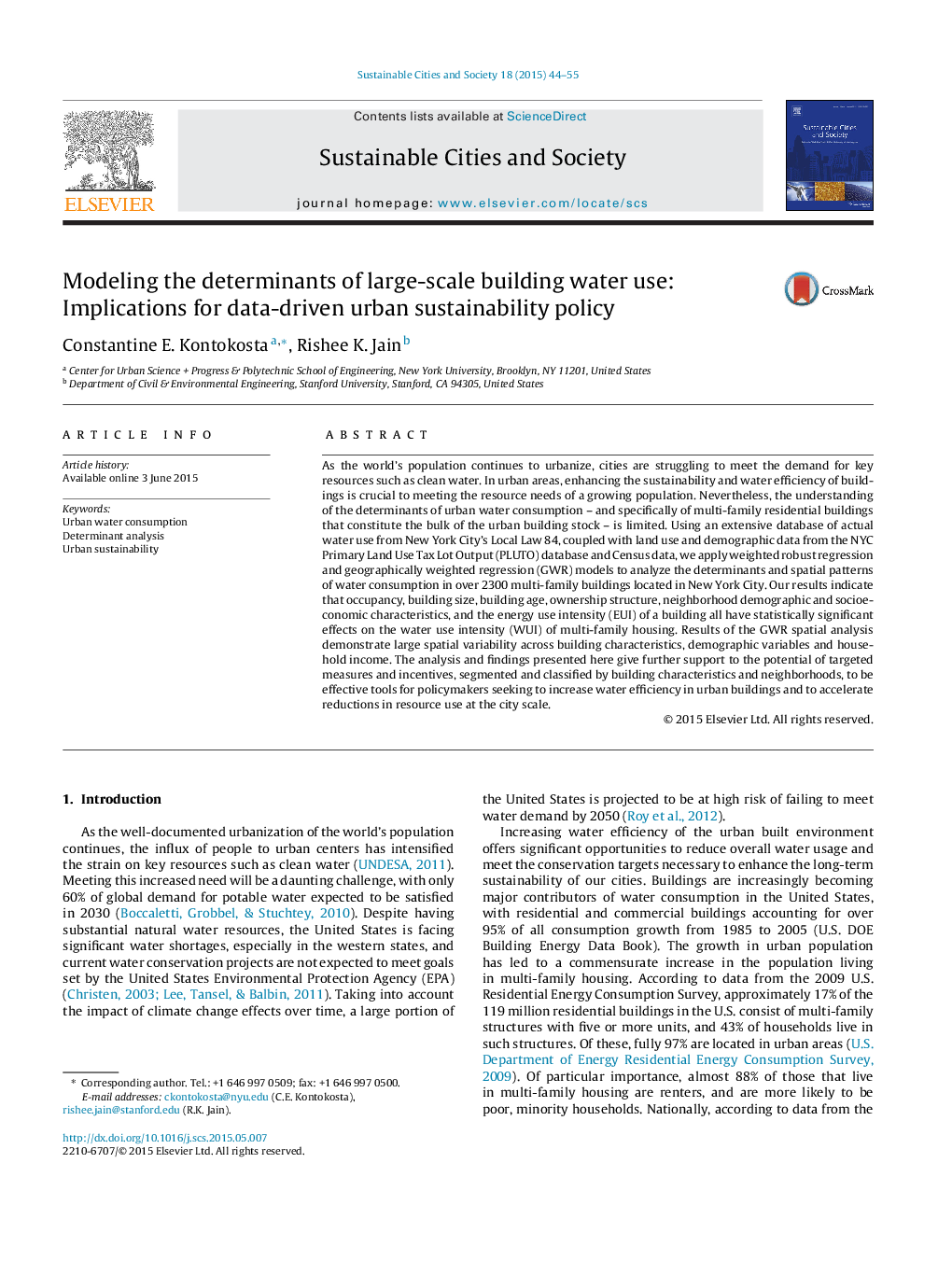| کد مقاله | کد نشریه | سال انتشار | مقاله انگلیسی | نسخه تمام متن |
|---|---|---|---|---|
| 308124 | 513526 | 2015 | 12 صفحه PDF | دانلود رایگان |
As the world's population continues to urbanize, cities are struggling to meet the demand for key resources such as clean water. In urban areas, enhancing the sustainability and water efficiency of buildings is crucial to meeting the resource needs of a growing population. Nevertheless, the understanding of the determinants of urban water consumption – and specifically of multi-family residential buildings that constitute the bulk of the urban building stock – is limited. Using an extensive database of actual water use from New York City's Local Law 84, coupled with land use and demographic data from the NYC Primary Land Use Tax Lot Output (PLUTO) database and Census data, we apply weighted robust regression and geographically weighted regression (GWR) models to analyze the determinants and spatial patterns of water consumption in over 2300 multi-family buildings located in New York City. Our results indicate that occupancy, building size, building age, ownership structure, neighborhood demographic and socioeconomic characteristics, and the energy use intensity (EUI) of a building all have statistically significant effects on the water use intensity (WUI) of multi-family housing. Results of the GWR spatial analysis demonstrate large spatial variability across building characteristics, demographic variables and household income. The analysis and findings presented here give further support to the potential of targeted measures and incentives, segmented and classified by building characteristics and neighborhoods, to be effective tools for policymakers seeking to increase water efficiency in urban buildings and to accelerate reductions in resource use at the city scale.
Journal: Sustainable Cities and Society - Volume 18, November 2015, Pages 44–55
